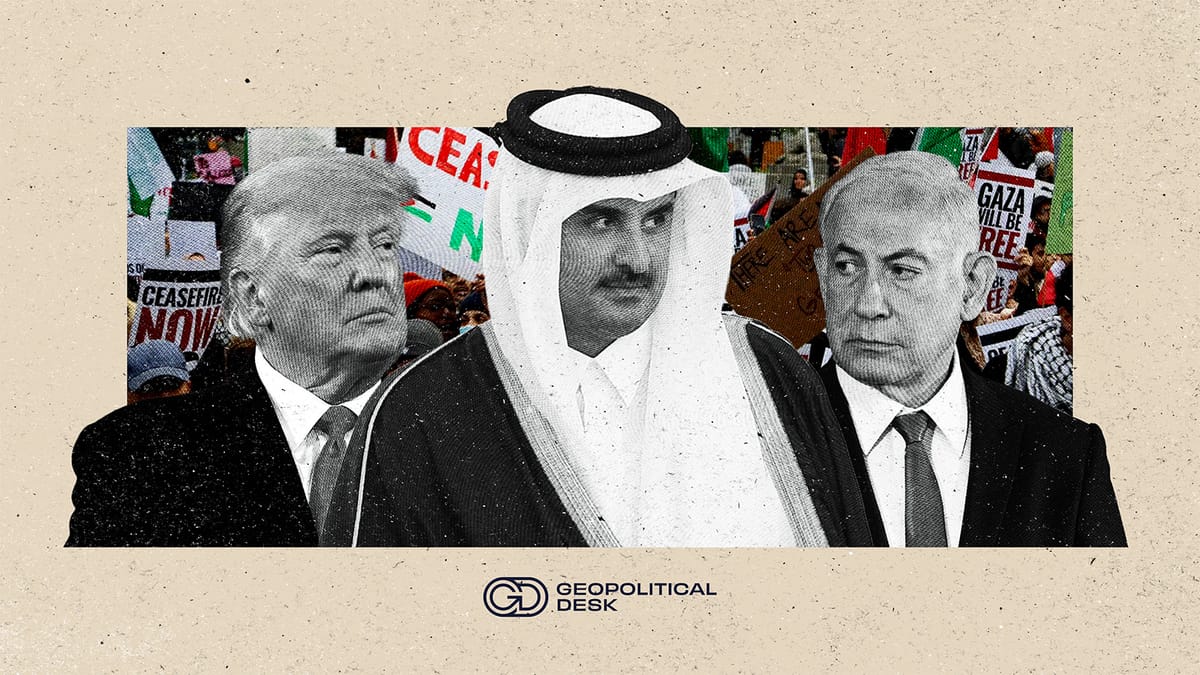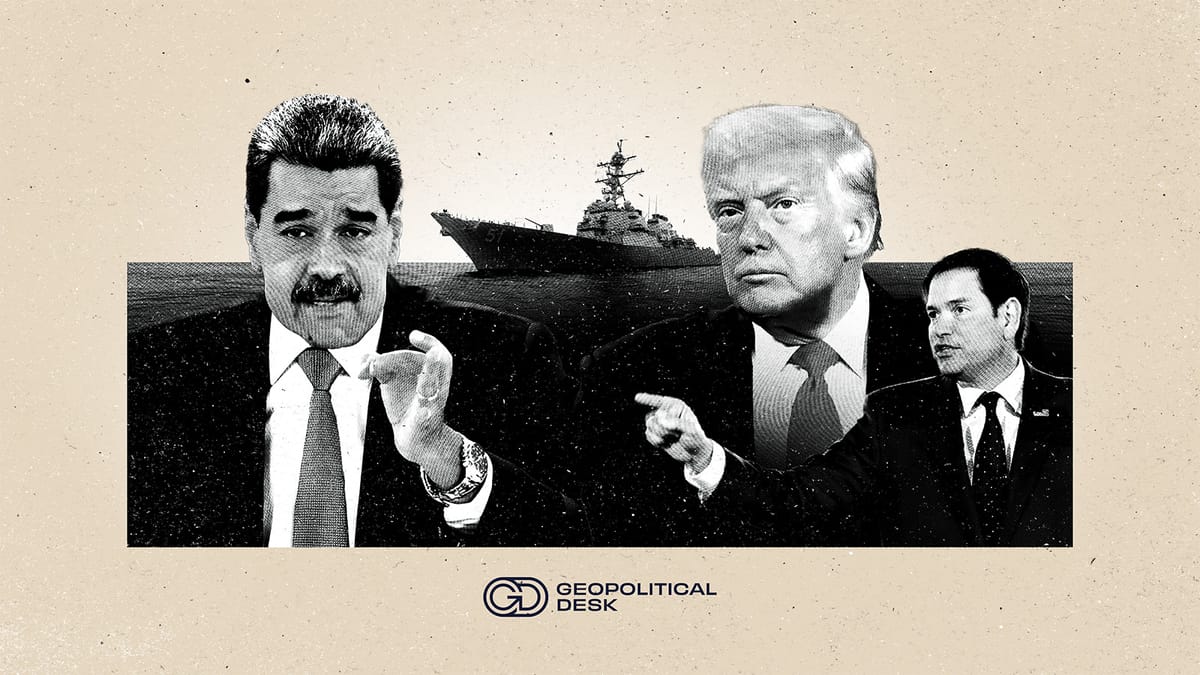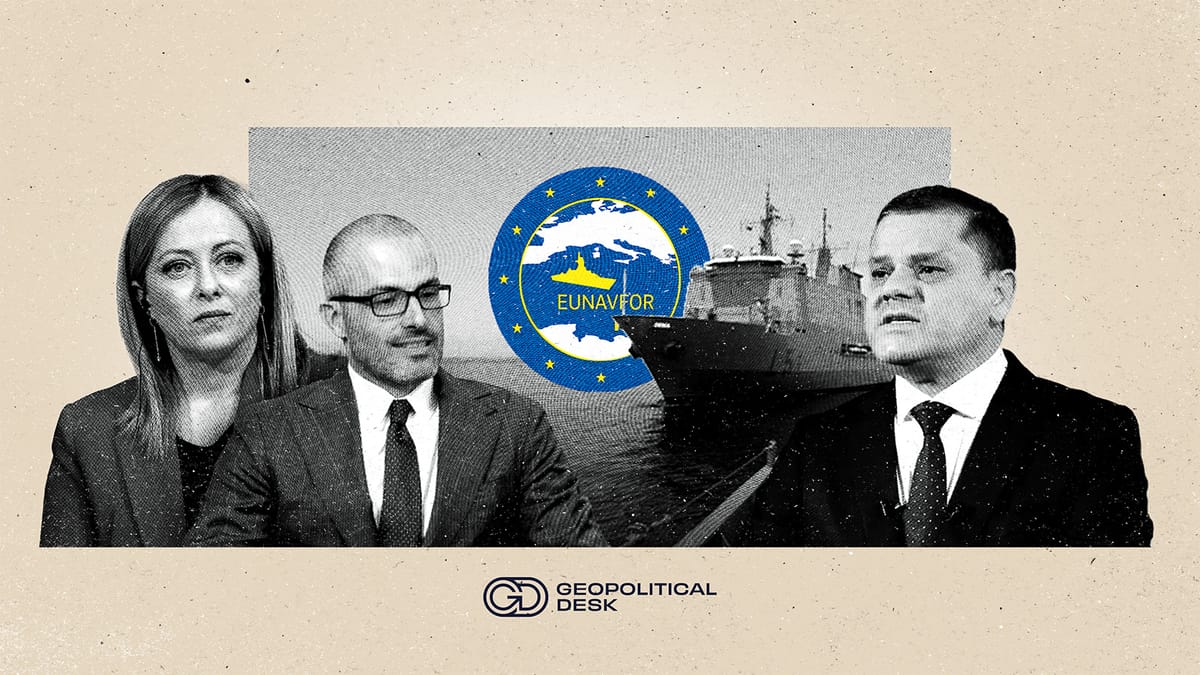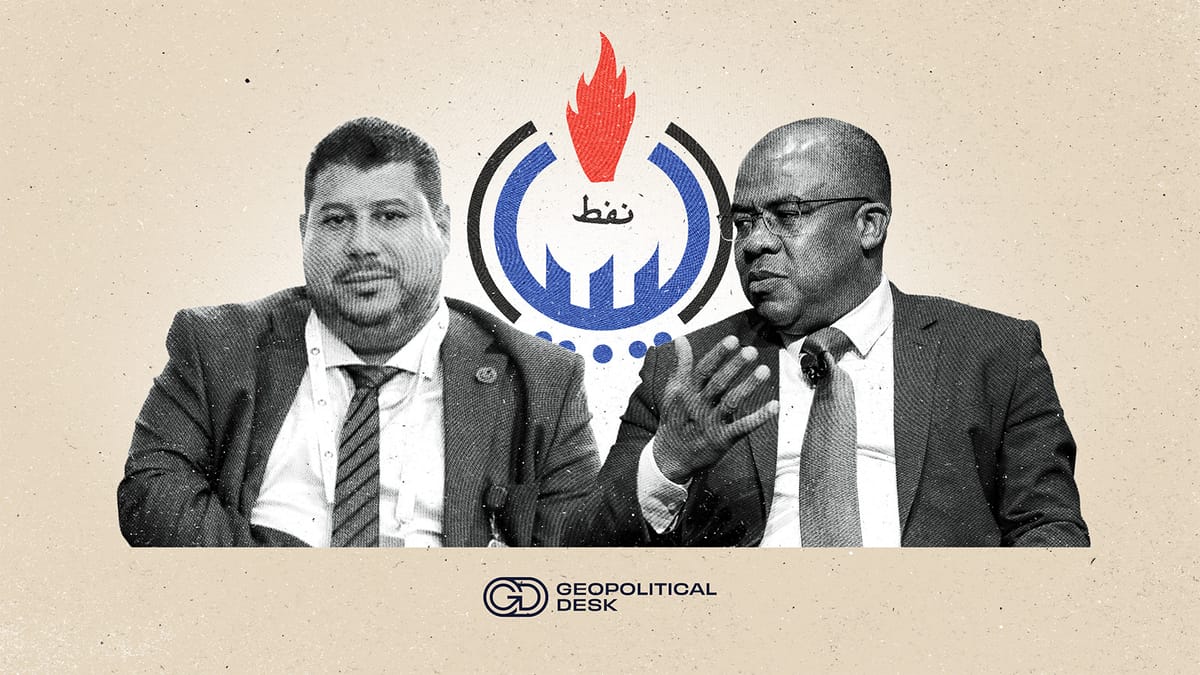Here we are again with another weekly round-up on global politics.
We hope this newsletter helps you cut through the noise and see where power is shifting, so that you can stay one step ahead as you plan the week ahead.
Speaking of the week ahead, we’ll be at the World Energies Summit in London next Tuesday and Wednesday to give a talk on Libya’s upstream outlook and meet with operators and partners. If you’re around, reach out, we’d love to connect.
As always, tell us what you think of this format and give us a follow on Instagram, LinkedIn and X to support us and stay plugged in.
Now let's get into it.
— Oliver, Co-Founder of GPD
🔎 What we're looking at this week
- Gaza: Trump bets his legacy on a fragile peace deal — will it hold long enough to matter?
- Venezuela: As the world watches Gaza and Ukraine, a new crisis brews in the Americas.
- Rare earths: Qatar and Abu Dhabi are quietly buying their way into Africa’s next resource race.
- Libya: European officials are pushing a risky play that could upend Libya’s arms embargo and Tripoli’s fragile ceasefire.
- World Energies Summit 2025: The Geopolitical Desk heads to London for a week of panels, strategy sessions, and private briefings with key stakeholders.
🗺️ Chart of the week

🇵🇸 Gaza ceasefire holds under pressure as Trump prepares visit
What happened: Trump’s ceasefire deal between Israel and Hamas took effect Friday, with all Israeli hostages to be released alongside around 2,000 Palestinian prisoners. Despite minor violations, the truce is largely holding. Trump is expected to visit the Middle East on Monday.
Why it matters: The truce marks the first sustained pause in fighting since July and is a crucial diplomatic test for Trump’s peace plan. Egypt’s mediation also highlights Cairo’s comeback as a regional stabiliser.
What this means: If Trump can ensure constructive talks continue, it could mark an end to the genocide in Gaza and present him with a significant foreign policy achievement. The primary challenge will be keeping Israel's leadership contained. Failure to do so would likely result in a return to conflict, undoing months of effort and seriously damaging U.S. credibility.
Go deeper

🇻🇪 A Nobel Peace Prize and a brewing confrontation in Venezuela
What happened: Opposition leader María Corina Machado won the 2025 Nobel Peace Prize for her “non-violent struggle for democracy,” just as the U.S. ramped up sanctions and ended diplomatic outreach with Caracas.
Why it matters: While global attention is fixed on the wars in Gaza and Ukraine, a dangerous confrontation is quietly brewing in the Americas. Trump’s administration has signaled a shift toward military options, undoing years of engagement and heightening the risk of direct military confrontation.
What this means: Trump ending talks paves the way for military confrontation and likely regime change. This brings countless risks from destabilising the country, with regional repercussions that could create a migration crisis for the US similar to that of Europe’s with post-2011 Libya.
Go deeper

🌍 Gulf states race to dominate Africa’s minerals market
What happened: Saudi Arabia, the UAE, and Qatar are joining the mineral race, targeting lithium, cobalt, and rare earths to secure supply chains for the green transition and ensure their geopolitical credentials in the new gold rush.
Why it matters: The Gulf is repositioning itself from oil supplier to global resource broker — inserting itself between Africa’s raw materials and Western or Chinese demand while also investing in its local supplies and capabilities.
What this means: Expect Gulf-Africa competition with Chinese and Western firms to intensify. For host states, Gulf funding offers speed and political cover — but raises governance risks.
Go deeper

🇱🇾 Europe’s risky gamble in Libya
What happened: European officials are attempting to divert a confiscated arms shipment that was initially bound for the eastern-based Libyan National Army (LNA) to Prime Minister Dabaiba’s forces in Tripoli instead.
Why it matters: Rome is prioritising migration control and stability in Tripoli over strict compliance with the UN arms embargo, a pragmatic but controversial move within the EU.
What this means: Short-term, the diversion strengthens Dabaiba’s position. Long-term, it risks fuelling imbalance between Libya’s rival administrations and undermining Europe’s credibility in enforcing its own sanctions.
Go deeper

🛢️ World Energies Summit: meet us in London next week
What’s happening: The GPD team will be at the World Energies Summit in London on October 14th and 15th to present new research on Libya’s upstream opportunities and the shifting dynamics of energy investment in MENA.
Why it matters: The summit gathers policymakers, IOCs, and investors at a time of volatile markets and accelerating competition for critical resources. Amongst other developments, Libya’s new bid round will feature prominently.
What this means: GPD will deliver a talk titled Libya’s energy sector: high risk, high reward and meet with partners and clients throughout the week. If you’re attending, get in touch to book a meeting with our team.
Go deeper







